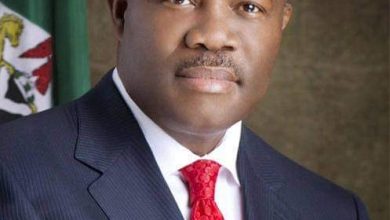Senate passes N13.5 trillion 2021 budget

The Nigerian Senate has agreed to pass the appropriation bill of N13.588 trillion.
The Nigerian Senate has agreed to pass the appropriation bill of N13.588 trillion, which is N505 billion higher than the proposed N13.082 trillion Buhari presented to the Senate in October for 2021 budget.
This was disclosed by the Nigerian Senate in a statement during plenary session on Monday.
Senator Barau Jibrin moved that the Senate receives and considers the report of the Committee on Appropriations of the 2021 Appropriation Bill, which was seconded by Senator Stella Oduah. She said: “Our infrastructure decay has been on the increase. I am very much impressed with the way and how this Budget has addressed our problems. I want to support and to urge my dear colleagues that we pass this budget.” Senate President, Ahmed Lawan, said the Senate worked hard to “meet the deadline of passing the 2021 Budget before we go on Christmas break.”The 2021 budget passed by the Senate is an increase of 31.9% from the approved N10.3 trillion FGN budget for 2020.
The parameters & fiscal assumptions underpinning the 2021 appropriation
- Benchmark oil price of 40 US Dollars per barrel.
- Daily oil production estimate of 1.86 million barrels (inclusive of Condensates of 300,000 to 400,000 barrels per day).
- Exchange rate of N379 per US Dollar.
- GDP growth projected at 3.0 percent.
- Inflation closing at 11.95 percent.
What you should know
- Nairametrics reported that President Muhammadu Buhari presented a budget of N13.08 trillion to the National Assembly in October.
- The Senate, on Wednesday, passed an executive communication from President Muhammadu Buhari, seeking the extension of the implementation of the capital aspects of the 2020 Appropriation Act, from December 31, 2020 to March 31, 2021.
Highlights of FGN Budget Proposals for 2021 Fiscal Year
His Excellency, the President of the Federal Republic of Nigeria, Muhammadu Buhari, GCFR, today 8 October 2020, presented the 2021 Federal Government Budget Proposals before a joint sitting of the National Assembly. The proposed Revenue and Expenditure budgets for 2021 are N8.43 trillion and N13.08 trillion, respectively, resulting in N4.65 trillion fiscal deficit.
Below are the key assumptions behind the budget and movements in the proposed fiscal parameters between the revised 2020 and 2021 Budgets:
| Budget Assumption/ Fiscal Parameter | 2020 Approved Budget | 2020 Revised Budget | 2021 Proposed Budget | Percentage change |
| Benchmark oil price | US$57 per barrel | US$28 per barrel | US$40 per barrel | 43% |
| Oil production volume (bpd) | 2.18 million | 1.80 million | 1.86 million | 3% |
| Inflation Rate (%) | 10.81 | 14 | 11.95 | -15% |
| Average exchange rate | N305/ US$1 | N360/ US$1 | N379/ US$1 | 5% |
| GDP growth rate (%) | 2.93 | -4.42 | 3 | 168% |
| Capital expenditure | N2.47 trillion | N2.69 trillion | N3.85 trillion | 43% |
| Statutory transfer | N0.56 trillion | N0.43 trillion | N0.48 trillion | 13% |
| Debt service | N2.43 trillion | N2.68 trillion | N3.12 trillion | 16% |
| Recurrent expenditure (non-debt) | N4.49 trillion | N4.94 trillion | N5.65 trillion | 14% |
| Total revenue | N8.42 trillion | N5.84 trillion | N8.43 trillion | 44% |
| Total expenditure | N10.59 trillion | N10.81 trillion | N13.08 trillion | 21% |
| Fiscal deficit | N2.17 trillion | N4.98 trillion | N4.65 trillion | -7% |
Source: Ministry of Budget and National Planning; 2020 Appropriation Act
The 2021 Budget, which has been themed the “Budget of Economic Recovery and Resilience”, is designed to deliver on the Government’s Economic Sustainability Plan goals, accelerate the pace of Nigeria’s economic recovery, promote economic diversification, enhance competitiveness and ensure social inclusion.
The President used the opportunity of the 2021 Budget presentation to announce the preparation of the Finance Bill, 2020 by the Honourable Minister of Finance, Budget and National Planning for passage with the 2021 Appropriation Bill. The Finance Bill, 2020 will seek to support the realization of the 2021 revenue projections, adopt appropriate counter-cyclical fiscal policies and enhance the efficiency of fiscal incentives.






